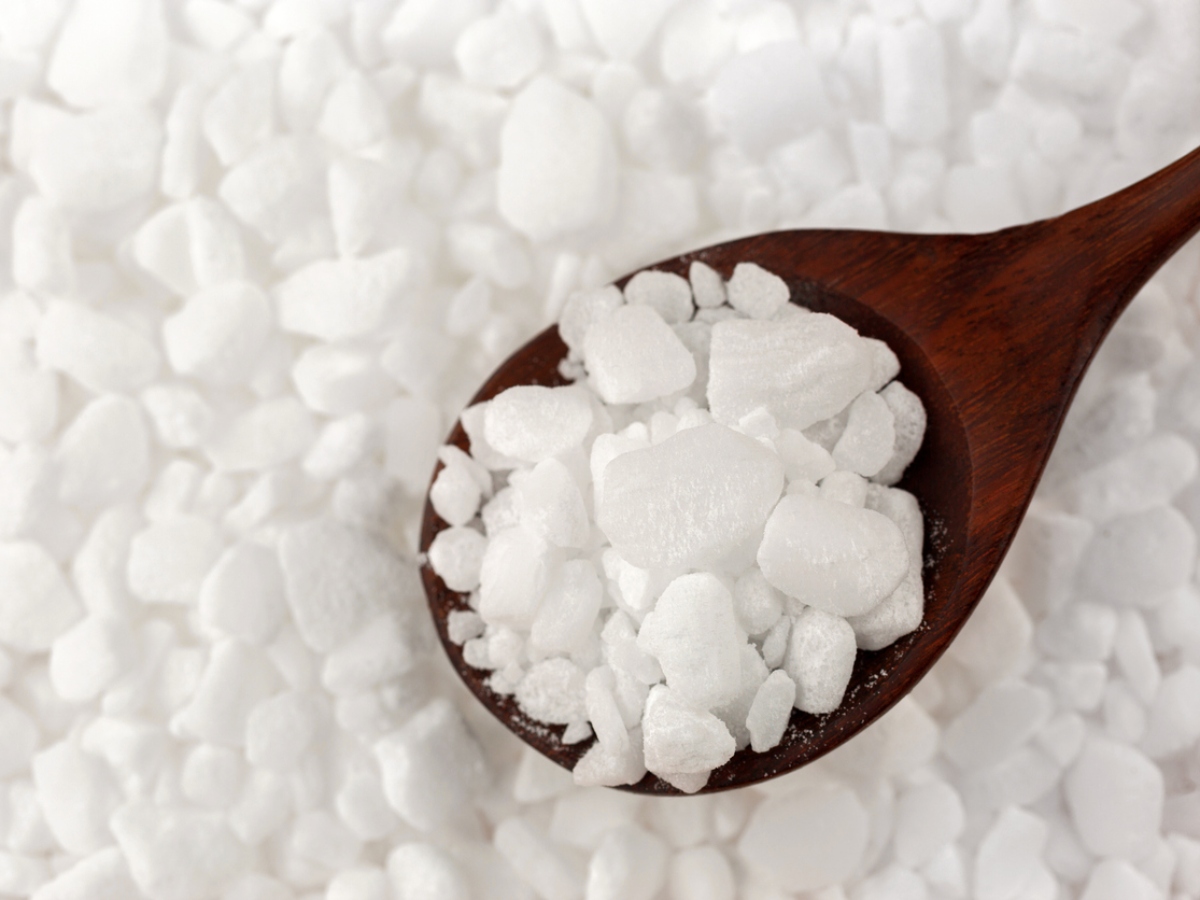You’re desert-thirsty. You take a glass and turn the faucet on, only to find your water tastes salty. If you’ve experienced this, you know how disconcerting it’s, especially if you can’t pinpoint the reason. Furthermore, Audrey Hepburn’s quote, “Water is life, and clean water means health,” aptly captures water’s importance. So, what causes water to taste salty? The primary culprits are sulfates and chlorine ions. These get into your water source through industrial wastes or natural occurrences, such as flooding. Water with a salty taste may also be due to issues with your water-softening system. Additionally, when seawater sips into underground water, it may cause your water to taste salty, but this is common in coastal areas.
This guide digs deeper into the whys and hows of water saltiness. We troubleshoot what’s happening, plus the quick fixes. The post also concludes with a recommendation of who can help you with an effective home water filtration system.
Why Does My Water Taste Salty?
A high concentration of chlorine or sulfates causes your water to taste salty. This section explains each reason and how it makes your water salty.
Sulfates in Your Water
Too much sulfate is a significant reason your water may taste salty. Sodium and magnesium sulfates are the primary compounds that make your water salty. However, it may not be as salty as seawater, but it doesn’t taste good. Sulfate compounds in water may be due to:
- Natural occurrences on the earth
- Combustion of organic matter
- Volcanic activity
- Industrial waste
Presence of Chloride Ions
This is the likely cause for your water tasting salty. Chlorine is used in water treatment, but when in excess, it has detriments. However, it’s a naturally-occurring compound and may find its way into your water through the following:
- Salt-bearing geological formations
- Soil weathering
- Salt spray deposition
- Seawater intrusion into groundwater
- Wastewater from sewage or industries

Problem With Your Water Softener System
Water softeners remove minerals from your water, including salt. However, if your water softener isn’t working correctly, it can do the opposite, add salt to your water. This is a common problem in the morning because the regeneration cycle occurs at night. The issue happens to softeners that have pressure-holding flapper valves. When pressure drops, the valve opens, and salt leaks into the water. Thus, if your water tastes salty in the morning only, this is the cause.
Addressing this problem is easy. You only need to let the water flow a bit before using it. The water’s pressure clears the saltiness making the water palatable. Other water softener issues include:
Crimped or Clogged Brine Line
The brine line connects the brine and media tank, and if clogged or crimped, it may cause your water to taste salty. This is because the line prevents water from passing through after regeneration. The best solution is to check and remove the cogs and sediments. Also, you may have to purchase a new part if there’s extensive damage.
Clogged Drain Line Flow Control
Another cause of water tasting salty is a clogged drain line. In most cases, your softener has two drains; one connects to the drain tank and serves as an overflow, and the other connects to the control valve and prevents backwash water during regeneration. Clogs prevent proper water flow, making your drinking water taste salty. To rectify the problem, check for blockages and remove them. If the drain is also long (above 20 feet), it may struggle to drain the water and be a source of saltiness.
Clogged Injector
Also known as the inductor, the injector is a suction-creating device with vertical and horizontal holes that suck brine water from the brine to the resin tank. You can’t suck the brine water if the injector is blocked or clogged, making your water taste salty. To address the problem, use a toothpick or toothbrush to unclog the injector.
How Harmful Is Salty Water?
Usually, water in your home is safe to drink because the salt levels aren’t that high. However, excessive and continuous drinking of salty water comes with some downsides. Nevertheless, experts recommend 20 mg/L and 270 mg/L for people with very deficient and moderately restricted sodium diets, respectively. Salty water causes your appliances to corrode faster, increasing repair costs. It’s also bad for your laundry as it doesn’t lather easily and may cause your clothes to fade faster. So, while those small sips may seem unharmful, you should be wary of all the cons of salty water.
Remember, different water sources may have different tastes. As such, it’s crucial to understand your water source, as it’ll help you narrow down the cause of the problem. The following are some of the primary water sources.
- Distilled water. It’s made from boiled water steam and purified of any bacteria, chemicals, or minerals.
- Alkaline water. Found naturally near mineral-rich springs or volcanos. However, you can use artificial processes to alkalize it.
- Sparkling water. This is packed carbonated mineral water. Nowadays, you can find it in flavors such as lemon.
- Well water. This is filtered groundwater. But due to the soil’s mineral content, it may have a characteristic taste.
- Spring water. It’s sourced from mountainous areas with ice or snow runoffs. It may have a taste as minerals dissolve in it as it flows.
- Tap water. It’s the most common source in many homes and is derived from local municipalities. It’s treated with chlorine or fluorine, which can give it a taste. If copper pipes are used, they can also make it taste different as they age.
Troubleshooting Salty-Tasting Water
Troubleshooting the source of your water’s saltiness is challenging, but it doesn’t mean it’s unachievable. To find how and where the problem lies, do the following:
- Check your water source: If you live around the coast, you may be getting seawater contamination in your water supply. Contact your local water provider to know where your water comes from and if it’s treated to remove the salt.
- Check your water softener: If you use a water softener, check for clogs or the settings to ensure it functions correctly. If not, you have to consult a professional to repair or replace it.
- Ask your local water utility company: If neither of the above steps sort out your issue, contact your local water utility to ask about potential chloride contamination. They’ll advise you on the way forward or provide a water quality report.

What to Do if Your Water Tastes Salty
A salty aftertaste in water is something you should address due to its adverse effects. The best action is to have the water tested so that you know the issue and how best to address it. With that done, finding a solution, especially going the water filtration system way, becomes easier.
One of the best ways of removing saltiness in water is by investing in a home water filtration system. These systems typically use activated carbon or reverse osmosis to remove contaminants. Furthermore, water filtration systems have a long history of providing many other benefits, such as improved taste and smell and prevention of plumbing fixture wear and tear.
The common ways your water filtration system removes minerals include:
- Distillation: This involves boiling the water and tapping the steam. The impurities are left behind; thus, the steam is pure. However, it isn’t 100% effective because minerals with a lower boiling point aren’t removed.
- Reverse osmosis: This water purification method pushes water through a membrane that prevents contaminants from passing. Reverse osmosis has many benefits, although it’s relatively ineffective in removing sulfates in the water. It’s known to remove only 93-99% of sulfates.
- Ion exchange: Even though not commonly used at home, it’s an effective sulfate-removing method, especially at an industrial scale.
- Activated charcoal: Also known as Granular Activated Carbon and abbreviated as GAC, activated carbon is the most widely used method. It removes odor, improves taste, and removes high levels of minerals while leaving the essential ones.
The filters use a unique carbon and remove the minerals through adsorption. It also solves my water tastes salty issues. This process chemically binds the minerals on its surface rather than absorbing them. Thus, it’s essential to replace your filters as recommended.
Bid Goodbye to Salty Water with ONIT Home
If you’re concerned about the taste or safety of your drinking water, ONIT Home provides water filtration systems designed to meet a range of needs. This includes whole-house water filtration systems and point-of-use systems like under-sink water filters. Our filters are your best line of defense from contaminants and PFAS or forever chemicals while leaving essential ones. Moreover, our filtration systems are installed by experienced and professional ONIT Home technicians. Experts at ONIT Homes ensure the water filtration system is guaranteed to last, is pro-installed, and has a warranty. Take advantage of our free water tests to determine your water quality.
For more information about quality soft water, contact us today at 1-833-433-0331 or fill out our online form to get a free quote.



